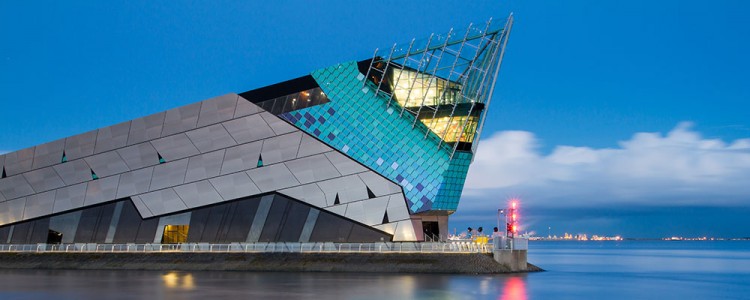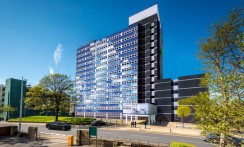
Business growth in Hull is surging. Having been hit hard by the decline in its traditional industrial base in the 60s 70s and 80s - not least the fishing and associated industries - it has taken East Yorkshire’s largest city a while to re-establish itself. But re-establish itself it has.
In addition to an established manufacturing base and the petro-chemical industry, Hull has become a leader at the cutting edge of 21st century innovation in terms of both digital technologies and green energy. Hull is now the UK’s main base for wind farm technologies. At the same time it boasts a rapidly expanding tech sector which is showing dizzying growth of 24% year on year.
A city on the up
Hull is on the up. Once renowned for little more than its dilapidated and unemployed dockyards, a sense of history having passed it by and a spectacularly successful album title (The Housemartins’ Hull 4 London 0), East Yorkshire’s major city was seen as little more than an industrial backwater. It is not stretching a point to suggest that the commonly held view was of a city without a future.
That impression has now been comprehensively overturned. A string of high tech developments boosted by an asserted, progressive and business-friendly local authority have brought a new wave of economic uplift as well as optimism to the city. The award of the title of 2017 European City of Culture may well recognise the city’s rich cultural history (including its contribution to pop culture), but it is perfectly timed to coincide with the re-emergence of the city as a major commercial location.
Energetic investment

A £310 million investment in the city’s Green Port Hull is set to not only generate over 1,000 new jobs in the renewable sector, but also to act as a catalyst for the surrounding area. Low land prices and some of the lowest business rates nationally have been key to the development of sustainable business parks as well as large scale developments throughout the city.
The Marfleet Environmental Technology Park, the £25 million Kingston Parklands Business Park, Vivergo’s £350 million bio refinery and a £100 million programme to convert the city’s King Geroge Dock into a renewable energy processing facility are all tangible realisations of Hull’s commercial resurgence. And these are by no means isolated examples.
Bright future
And there are good reasons why that resurgence is widely predicted to continue. Low house prices (that are in line to rise by 30% within the next 5 years), a swathe of housing developers actively investing in the area ensuring a strong supply of affordable homes for first time buyers and the high quality of life that the city and the surrounding Yorkshire countryside afford, all combine to make Hull a very bright prospect indeed.
Hull was very early in establishing a city-wide digital infrastructure, and that far-sighted investment is beginning to reap a handsome return. The city is fast developing a reputation as a mecca for digital start-ups. Trident and Ebuyer, as well as early-stage companies such as Frillo,LabelWORX and Sypro. Are all now established in a city that is seeing fast putting its downbeat recent past firmly behind it.
The award of European City of Culture status has been seen elsewhere to provide a significant economic boost to its host cities. All the indications are that Hull was already perfectly placed to enjoy an economic uplift even without that added effect.
Are you looking to buy property in UK ? Hurghada , Scotland , Istanbul , Sahl Hasheesh , Dubai
Are you looking to rent property in UK ? London , Manchester , Reading , Leeds , Cardiff











Author
Dennis Star